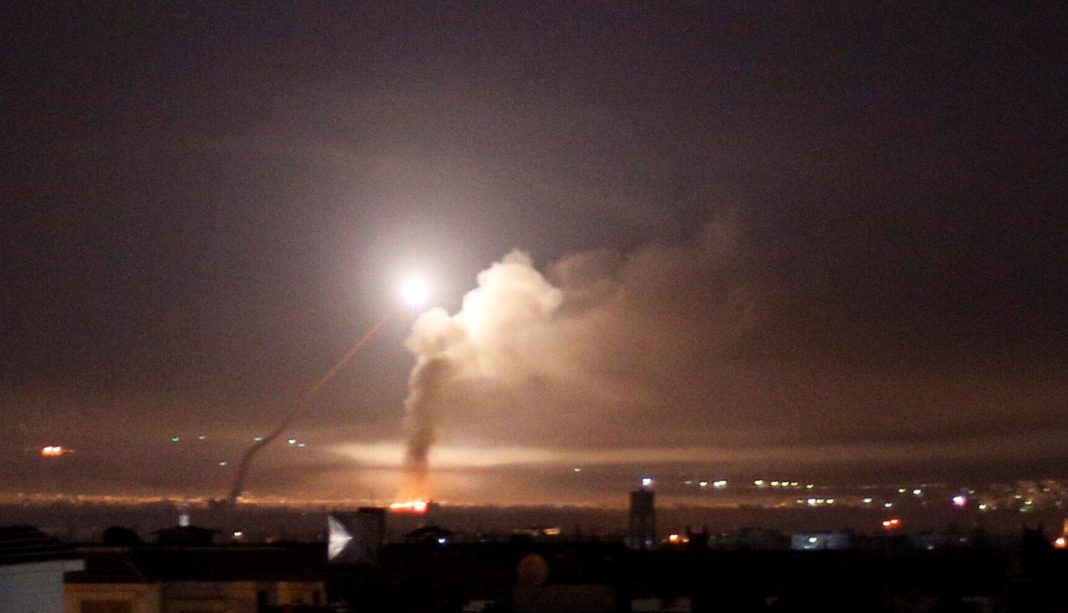Syria claims shooting down ‘most of the enemy missiles’ near Damascus, with broadcast images showing explosions.
Syria’s air defences have intercepted Israeli missiles near the capital Damascus shortly after their launch from over the occupied Golan Heights as well as through Lebanese airspace, according to its state media.
“Our air defences confronted an Israeli attack” west of Damascus, SANA news agency reported on Thursday, adding that they “were able to shoot down most of the enemy missiles before they reached their targets”.
State television broadcast images showing explosions in the sky. AFP news agency reported loud explosions being heard in several districts of Damascus at about 1:15am local time (23:15 GMT).
SANA specified that the Israeli raids attacked the al-Kiswah area – already targeted several times in the past – as well as Marj al-Sultan and Jisr Baghdad.
At least three government and Iranian positions near Damascus and west of the capital had been hit according to the Syrian Observatory for Human Rights (SOHR), which said a fire broke out in one of the areas.
There were no immediate reports of damage or casualties. A spokesman for the Israeli army declined to comment.
Previous incidents
Since the beginning of the Syrian conflict in 2011, Israel has carried out many raids against Syrian government forces and their allies, Iran and Lebanon’s Hezbollah group.
In mid-January, Damascus accused the Israeli air force of carrying out an attack on the T4 military airport in central Syria. The same base has been attacked by Israeli raids on several occasions.
Israel regularly insists that it will not let Syria become a bridgehead for Tehran.
In November, the Israeli army claimed responsibility for a series of air raids against government military sites and Iranian forces that killed 23 people including 16 foreigners, according to the Observatory.
Sparked by the government suppression of pro-democracy protests, the conflict in Syria has been complicated by the involvement of international powers.
It has left more than 380,000 people dead, including at least 115,000 civilians.













![Hotstar Premium Cookies 2019 [*100% Working & Daily Updated*] Hotstar Premium Cookies 2019 [*100% Working & Daily Updated*]](https://tahav.com/wp-content/uploads/2019/11/Hotstar-Premium-Cookies-Free-100x70.jpg)



